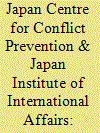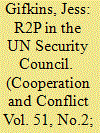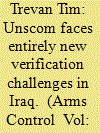| Srl | Item |
| 1 |
ID:
095373


|
|
|
|
|
| Publication |
2010.
|
| Summary/Abstract |
Bilateral investment treaties (BITs) have become the dominant source of rules on foreign direct investment (FDI), yet these treaties vary significantly in at least one important respect: whether they allow investment disputes to be settled through the International Centre for the Settlement of Investment Disputes (ICSID). Through the compilation and careful coding of the text of nearly 1,500 treaties, we identify systematic variation in "legal delegation" to ICSID across BITs and explain this important variation by drawing upon a bargaining framework. Home governments prefer and typically obtain ICSID clauses in their BITs, particularly when internal forces push strongly for such provisions and when they have significantly greater bargaining power than the other signatory. Yet some home governments are less likely to insist upon ICSID clauses if they have historical or military ties with the other government. On the other hand, although host governments are often hostile toward ICSID clauses, particularly when sovereignty costs are high, they are more likely to consent to such clauses when they are heavily constrained by their dependence on the global economy. Our findings have significant implications for those interested in FDI, legalization, international institutions, and interstate bargaining.
|
|
|
|
|
|
|
|
|
|
|
|
|
|
|
|
| 2 |
ID:
046737


|
|
|
|
|
| Publication |
Tokyo, Japan center for conflict Prevention, 2002.
|
| Description |
xiii, 774p.
|
|
|
|
|
|
|
|
|
|
|
|
Copies: C:3/I:0,R:0,Q:0
Circulation
| Accession# | Call# | Current Location | Status | Policy | Location |
| 043959 | 303.69095025/DIR 043959 | Main | On Shelf | General | |
| 044018 | 303.69095025/DIR 044018 | Main | On Shelf | General | |
| 045660 | 303.69095025/DIR 045660 | Main | On Shelf | General | |
|
|
|
|
| 3 |
ID:
145728


|
|
|
|
|
| Summary/Abstract |
It has been argued that consensus on the responsibility to protect (R2P) was lost in the United Nations Security Council as a result of the NATO-led intervention in Libya in 2011. This argument assumes that there was more agreement on R2P before the Libyan intervention than there was afterwards. Yet, a close examination of the Security Council’s use of language on R2P shows the opposite: R2P was highly contentious within the Security Council prior to the Libyan intervention, and less so afterwards. Not only has the Council used R2P language more frequently since 2011, but also negotiating this language has become quicker and easier. To demonstrate this I compare negotiations on Darfur with deliberations during and after the Arab Spring. Resolution 1706 on Darfur was the first time the Security Council referred to R2P in a country-specific resolution – and indeed it was the only country-specific resolution to refer to R2P before 2011 – making it an apt point of comparison. Via focused analysis on how the language used in Security Council resolution evolves over time, this article demonstrates that the Council has found ‘agreed language’ on R2P that is acceptable to members, both for thematic resolutions and country-specific resolutions. Language on R2P in Security Council resolutions has shifted from contentious to commonplace.
|
|
|
|
|
|
|
|
|
|
|
|
|
|
|
|
| 4 |
ID:
015948


|
|
|
|
|
| Publication |
April.
|
| Description |
11-15
|
|
|
|
|
|
|
|
|
|
|
|
|
|
|
|